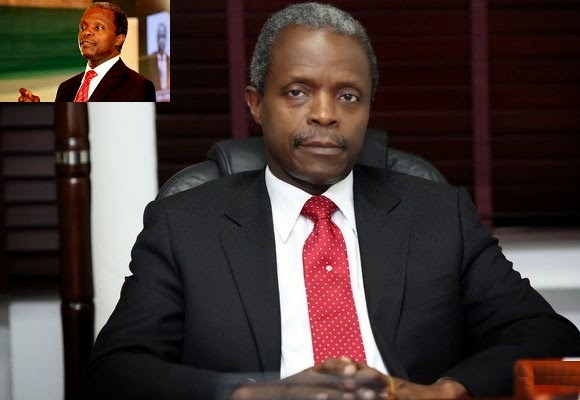Vice President Yemi Osinbajo on Thursday stressed the need for Nigeria to reduce the cost of governance in the public sector and entrench transparency and accountability at all levels.
According to him, there was need to review the Procurement Act of 2017, saying there may be need for the amendment proposal to be made to the National Assembly on it.
Osinbajo, represented by the Minister of State for Education, Chukwuemeka Nwajiuba, stated these in Abuja during the formal inauguration of the Sustainable Procurement, Environmental and Social Standards Enhancement.
The PUNCH reported that the World Bank-sponsored SPESSE project aimed to develop human capacity in procurement management in the public and private sectors and to produce competent and intellectually sound procurement professionals.
The SPESSE is domiciled in six universities across the six geo-political zones of Nigeria.
The Universities are the University of Lagos, Federal University of Agriculture, Makurdi; Abubakar Tafawa Balewa University, Bauchi; Ahmadu Bello University, Zaria and the University of Benin.
While saying that the SPESSE was key to achieving and maintaining sustainable physical infrastructure, Osinbajo said that if Nigeria must achieve the objectives of the Economic Recovery Growth Plan and the Sustainable Development Goals, the country must get it right in procurement, environmental and social safeguards.
He said, “Nigeria must make progress in reducing the high cost of governance in the public sector as well as be strengthened by entrenching transparency and accountability at all levels of government, while issues relating to construction, rehabilitation and extension of existing buildings, acquisition of lands, purchase of laboratory equipment, disposal of reagents and samples amongst others must conform with world standards”.
To achieve this, the VP said there was need to build adequate technical capacity required for efficient and effective procurement, environmental and social safeguard systems.
Speaking on the need to review the Procurement Act of 2017, the Vice President expressed the satisfaction of the government in the existing laws, saying if need be for amendment, proposal would be made to the National Assembly on it.
“We are satisfied with how the Procurement Act of 2017 is being implemented at the moment, but administrative powers to deal with legal issues will be subject to when the National Assembly will have to debate and agree on revolving such powers,” he said.
The Minister of Education, Adamu Adamu, represented by the Permanent Secretary, Federal Ministry of Education, Sonny Echocho, said it was time to grow home-grown experts in procurement to address issues in capital projects.
He called for accelerated implementation of the projects.
“This will address issues of inefficiencies in procurement and lack of compliance in social standards,” he said.
The Executive Secretary of the National Universities Commission, Prof. Abubakar Rasheed, said Nigeria was finally on the path to developing the much-needed critical mass of professionals in the fields of procurement, environmental standards and social standards.
“The SPESSE Project is Nigeria’s first attempt at institutionalising sustainable capacity building in the fields of procurement, environmental and social standards, by offering professionalisation and academic programmes in a custom-made, fit-for-purpose and sustainable manner, through the centres of excellence.
“This project is a capacity building, one that assures results across the entire Nigerian economy.”
Responding on behalf of the SPESSE host centres, Vice-Chancellor of UNILAG, Prof. Oluwatoyin Ogundipe, expressed the readiness of the Universities to host the centres, saying UNILAG already had over 12 functional centres.
PUNCH


